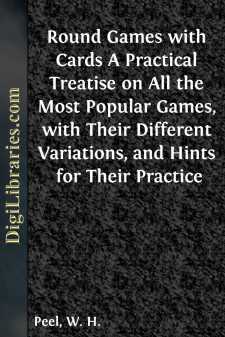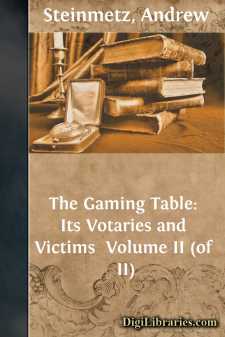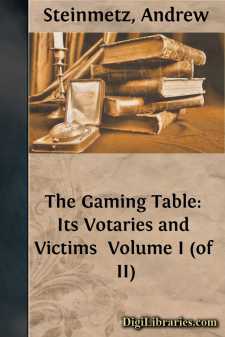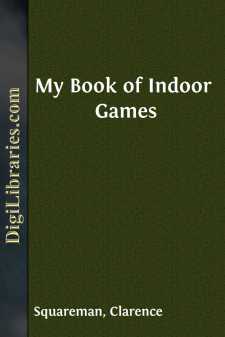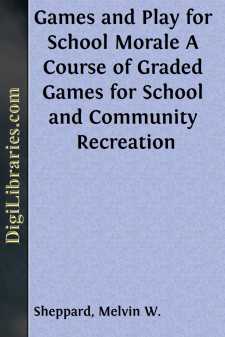Games
- Card Games 1
- Chess 4
- Gambling 2
- General 9
- Puzzles 3
Games Books
Sort by:
by:
W. H. Peel
“NAP,” “NAPOLEON.”¯¯¯¯¯¯¯¯¯The game of Napoleon, or as it is more generally and popularly called “Nap,” was introduced into this country from the United States, it is believed, about 1865, although it is recorded that the game had previously been played for high stakes at some of the more notorious gambling clubs. It is named after the great Napoleon, as the principal player in the...
more...
by:
Andrew Steinmetz
CHAPTER I. CHEVALIERS D'INDUSTRIE, OR POLITE SHARPERS. Chevaliers d'industrie, or polite and accomplished sharpers, have always existed in every city, from the earliest times to the present. The ordinary progress of these interesting gentlemen is as follows. Their debut is often difficult, and many of them are stopped short in their career. They only succeed by means of great exertion and...
more...
by:
Frederica Seeger
GOING SHOPPING A lively game of "talk and touch." The company is seated in a circle, and one who understands the game commences by saying to his neighbor at the right: "I have been shopping." "What did you buy?" is the required response. "A dress," "a book," "some flowers," "a pencil"—whatever the first speaker wishes, provided always that he...
more...
CHAPTER I BRIGHT-WITS ARRIVES IN PARRABANG, WHERE HE MEETS THE BEAUTIFUL AZALIA AND BEGINS HIS EXTRAORDINARY TASKS Long ago, before geographies were invented, so that it were useless to seek for the kingdom on any modern map, there lived a wise King who had but one son, of whom he was exceeding fond. Under the guidance of learned teachers the young prince had read the Koran according to the seven...
more...
PAPER BUILDING CARDS Make your building cards of ordinary writing-paper. You may have as many cards as you like, though twelve are all that are used to make the things shown in our photographs.Fig.1—Cut an oblong out like this.Fig.2—This is the building card.For each card cut an oblong of paper five inches long and two and a half inches wide. This is a very good size, but you can make them a little...
more...
by:
Andrew Steinmetz
To the readers of the present generation much of this book will, doubtless, seem incredible. Still it is a book of facts—a section of our social history, which is, I think, worth writing, and deserving of meditation. Forty or fifty years ago—that is, within the memory of many a living man—gambling was 'the rage' in England, especially in the metropolis. Streets now meaningless and...
more...
INTRODUCTION "Let the child imbibe in the full spirit of play. There is nothing like it to keep him on the path of health, right thinking and mind development." That is the guiding purpose of the author. The reader will find in this book a collection of old and present day games. The student of Play has long realized that there are no new games, that all our games of today are built on the old...
more...
PURPOSE AND PLAN.—This book aims to be a practical guide for the player of games, whether child or adult, and for the teacher or leader of games. A wide variety of conditions have been considered, including schools, playgrounds, gymnasiums, boys' and girls' summer camps, adult house parties and country clubs, settlement work, children's parties, and the environment of indoors or out of...
more...
It is just as essential that the teacher who enters a schoolroom in September know how to play with children as to teach them. By no better means, perhaps, may the spirit of friendship and co-operation be so thoroughly strengthened and firmly established as through games. The mental, moral and physical growth attained through participation in games cannot be overestimated. To listen to directions, to...
more...
In issuing this volume of my Mathematical Puzzles, of which some have appeared in periodicals and others are given here for the first time, I must acknowledge the encouragement that I have received from many unknown correspondents, at home and abroad, who have expressed a desire to have the problems in a collected form, with some of the solutions given at greater length than is possible in magazines...
more...


